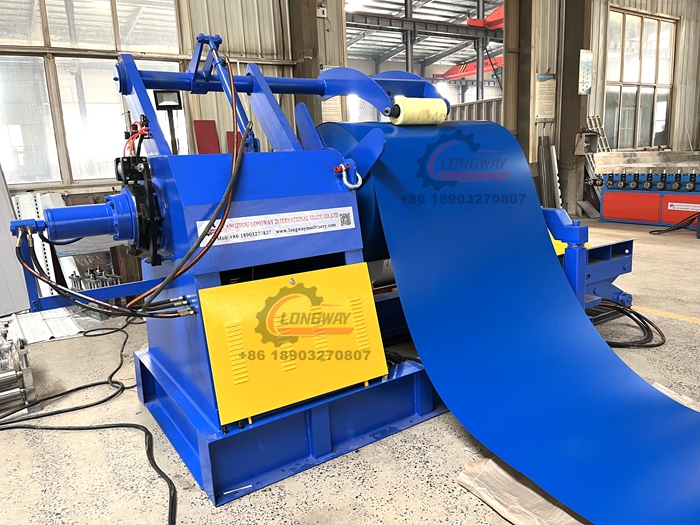roofing sheet manufacturing machine price
Understanding the Costs of Roofing Sheet Manufacturing Machines
In the construction and building materials industry, roofing sheets serve as a crucial element for the integrity and aesthetics of buildings. With an increasing demand for durable and cost-effective roofing solutions, the manufacturing of roofing sheets has become a lucrative business opportunity. A critical factor in this venture is the investment in roofing sheet manufacturing machines, which can vary significantly in price. This article delves into the aspects that influence the pricing of these machines and the considerations for prospective buyers.
Types of Roofing Sheet Manufacturing Machines
Roofing sheet manufacturing machines come in various types and configurations, tailored to produce different materials and profiles. The most common machines include
1. Roll Forming Machines These are designed to create continuous profiles of roofing sheets from coils of metal. The price of roll forming machines can vary based on factors such as the type of metal used, the complexity of the profile, and the production capacity.
2. Cut-to-Length Machines Used for cutting roofing sheets into specific lengths, these machines are essential for production lines that require customized sizes, adding flexibility and versatility.
3. Hydraulic Press Machines These machines are employed in the pressing process for certain types of roofing sheets. The price may increase for machines equipped with advanced technology and features that enhance performance.
4. Painting and Coating Machines For producing visually appealing roofing sheets, these machines apply finishes and coatings. The complexity of the application process can significantly influence the overall cost.
Factors Affecting Pricing
Several factors contribute to the pricing of roofing sheet manufacturing machines
roofing sheet manufacturing machine price

1. Technology and Automation Machines that incorporate advanced technology, such as computer numerical control (CNC) or automation features, tend to be more expensive. These technologies increase efficiency, reduce labor costs, and improve product quality.
2. Capacity and Speed Machines with higher production capacities or faster operation speeds generally command higher prices. Businesses projecting high demand will need to weigh the trade-off between initial investment and potential returns.
3. Material Specifications The type of materials the machine can handle (e.g., steel, aluminum, or other alloys) can also influence the price. Machines designed for specific or high-quality materials usually incur greater costs due to enhanced engineering and material requirements.
4. Customization and Features Manufacturers often offer customization options, such as specific tooling or unique production capabilities. These custom features can drive up the price significantly depending on the level of specialized engineering involved.
5. Brand and Warranty Support Reputable brands with established market presence may charge more for their machines, but often provide better support, warranties, and customer service, which are essential for minimizing downtime in production.
Budgeting for Investment
When considering an investment in roofing sheet manufacturing machines, it is crucial to establish a budget that not only accounts for the initial costs but also the operational expenditures. Potential buyers should conduct a thorough market analysis to compare prices from various manufacturers, taking into account additional costs such as shipping, installation, and ongoing maintenance.
Future Trends and Considerations
As the construction industry continues to evolve, trends such as sustainability and energy efficiency are becoming more prominent. Buyers should consider investing in machines that accommodate eco-friendly materials and practices, which will likely be favored in future construction projects.
In conclusion, the price of roofing sheet manufacturing machines is influenced by various factors, including technology, capacity, specifications, and brand reputation. Understanding these elements will enable prospective buyers to make informed decisions that align with their business goals and market demands. As the demand for innovative roofing solutions grows, investing in the right machinery can provide a significant competitive advantage.
-
Roof Panel Machines: Buying Guide, Types, and PricingNewsJul.04, 2025
-
Purlin Machines: Types, Features, and Pricing GuideNewsJul.04, 2025
-
Metal Embossing Machines: Types, Applications, and Buying GuideNewsJul.04, 2025
-
Gutter Machines: Features, Types, and Cost BreakdownNewsJul.04, 2025
-
Cut to Length Line: Overview, Equipment, and Buying GuideNewsJul.04, 2025
-
Auto Stacker: Features, Applications, and Cost BreakdownNewsJul.04, 2025
-
Top Drywall Profile Machine Models for SaleNewsJun.05, 2025








